“Sleep is the elixir of life. But we are a sleep deprived society.”
We spend nearly one third of our lives asleep. But few of us (including me, until now) have tried to optimize this part of our life.
And doing so could have a profound impact.
Improving your sleep schedule has life changing benefits. And here’s just a few of them: boosting mental and physical performance; disease prevention; slowing the aging process; and supporting weight loss.
At least according to Matthew Walker. He's director of the Centre for Human Sleep Science and a top neuroscientist with two decades of sleep research under his belt. And his MasterClass promises to help you understand the science of sleep, and how to up your sleep game.
But how good is the Matthew Walker MasterClass? What can you gain from it? Is it right for you and your circumstances? Is it actually worth your time and effort?
These are some of the questions I'll be answering in this Matthew Walker MasterClass review.
But first, the highlights:
.
Quick Summary
Learn how:
- You can improve the quantity and quality of sleep you’re getting
- To identify your own chronotype and optimize your sleep schedule
- To sleep in a way that boosts your memory recall and ability to learn
- Sleep prevents disease, slows the aging process, supports weight loss and optimizes physical and mental performance
- Your body responds positively to sleep, and negatively to a lack of it
- Dreaming works – and how it benefits your waking self
Pros:
- Two decades of sleep research summarized in one easy to follow class
- Actionable tips to improve sleep quality and quantity
- Strong facts that are a resounding call to action
- The science behind sleep is made simple and accessible
- Great screen graphics and animations support learning
Cons
- More theoretical than practical
- Workbook lacks a glossary of terms
- Does duplicate some of what’s in his book
Course length: 15 video lessons totalling 3 hours and 12 minutes
Best for: Those looking to improve their sleep. But also anyone who is intellectually curious or wants to maximize their potential to resist disease, learn, perform and live longer. However, if you have a serious sleep disorder (sleep apnea, severe insomnia, restless leg syndrome, etc) though you will still learn from this course, your first port of call should be your doctor.
Overall: Matthew Walker draws on two decades of research to give you a far reaching insight into the science behind sleep. And there are actionable tips for improving your own sleep quantity and quality.
Now for my more detailed review, here’s what I’ll be covering:
- A look inside the Matthew Walker MasterClass
- Pros and cons of the course
- Is the content unique?
- Is there anything better?
- Verdict: Is the Matthew Walker MasterClass worth it?
First the basics:
About Matthew Walker
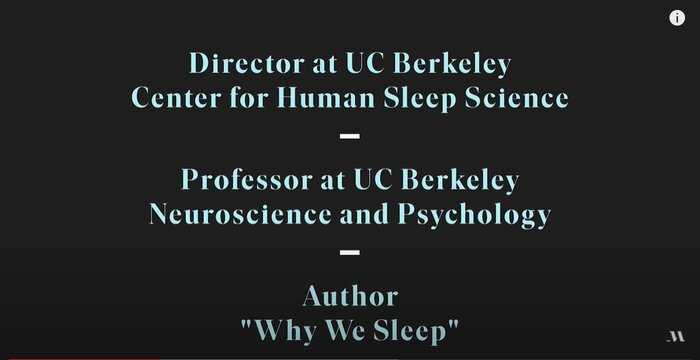
Originally from Britain, Matthew Walker is now professor of neuroscience and psychology at the University of California.
He’s also the director of the Center for Human Sleep Science, a Kavli Fellow of the National Academy of Sciences and has published over one hundred research studies on the effect of sleep on brain and body function.
Matthew is also author of the NYT best seller Why We Sleep which earned him the Carl Sagan Prize for Science Popularization and was named book of the year by Business Insider and NPR in 2017.
His 2019 TED talk, Sleep is your superpower, has been viewed over 12 million times.
In this MasterClass, he draws on over two decades of research to reveal the science of sleep and how it profoundly affects both our physical and mental health.
If you haven’t checked it out, I recommend you watch the Matthew Walker MasterClass trailer:
About MasterClass
MasterClass is rapidly becoming the most popular online learning platform out there.
Two things set it apart from the rest:
- Instructors whose accomplishments in their fields have earned them global celebrity status
- Extremely high production values
The MasterClass philosophy is simple: we all deserve access to genius and the right to learn from the very best.
Matthew Walker’s MasterClass sits beside courses from other world renowned experts such as Neil deGrasse Tyson, Hans Zimmer, Gordon Ramsay and Jon Kabat-Zinn.
Inside the Matthew Walker MasterClass

“Sleep has never come harder for folks around the world. In his MasterClass, Matthew desconstructs how sleep impacts almost everything we do and how to find more of it. There has never been a more important time for this class.”
— David Rogier, founder and CEO of MasterClass
Matthew Walker’s MasterClass comes in at just over three hours of viewing time. It consists of:
- 15 lessons which are mostly between 10-17 minutes long
- Access to an online community of fellow students
- A 24 page workbook containing an overview of the development of sleep science, links to further resources and questionnaires to help you identify your personal ‘chronotype’, Matthew’s top tips for getting more quality sleep, and much more
To give you an idea what to expect, I’ve summarized key takeaways from the lessons below:
Lesson 1: Meet your instructor

“Sleep… is Mother Nature’s best effort yet at immortality”
To a backdrop of chirping crickets and hypnotic music, Matthew invites us into the mysterious world of sleep, what it is and why we do it.
Describing himself as, “desperately passionate about this thing called sleep” Matthew wants you to learn:
- When you – personally – can optimally time your sleep
- How sleep impacts your memory and may reduce your risk of developing disease
- Ways in which sleep slows down the aging process
- And, of course, what dreams are and how they’re created
Lesson 2: What is sleep?
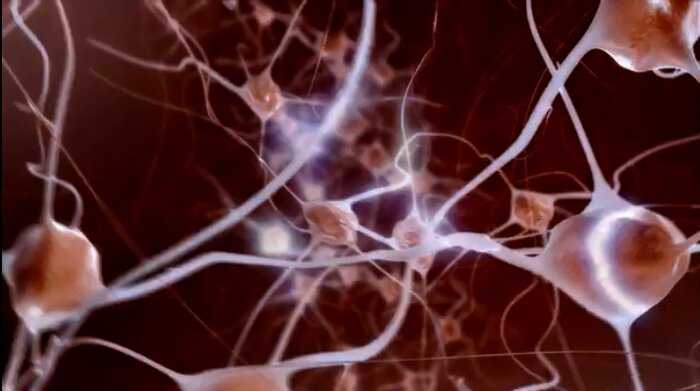
In his opening lesson, Matthew introduces us to the basics of sleep. This includes:
- An overview of the two basic types of sleep (REM and NREM)
- What happens to our bodies and brains during both types
- An explanation of how REM and NREM sleep relate to each other – and the complementary benefits that we gain as a result
- What happens to us when we don’t get enough sleep
This is a great way to frame the course. Matthew drives home the deeply therapeutic properties of sleep, which is a great motivation to continue the course, as well as setting a context for the rest of the class.
I loved the way Matthew’s passion for this subject was so tangible and infectious.
He has a way of combining scientific explanation with poetic language that make difficult concepts engaging and fascinating.
And there are a few mind blowing facts that may shock you into wanting to up your sleep game!
But no spoilers.
So we’re off to a good start – but how will the rest of the course compare?
Lesson 3: How sleep works
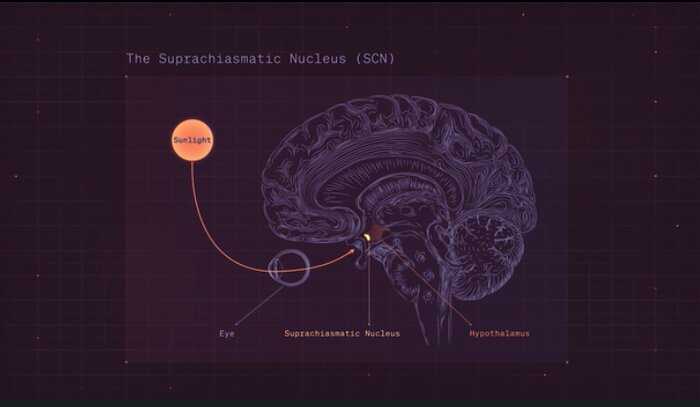
The information shared in this lesson helps you to understand your 24 hour body clock (or circadian rhythm) Matthew explains:
- The factors that determine your alertness and sleepiness and how they interact over a 24 hour period
- The influence of the individual (eg: age) and the environment (eg: light) on these factors
- Tips that will help you support your own biological rhythm
Again, Matthew does not hold back on the scientific terminology.
But careful repetition, screen graphics, animations and even Matthew’s body language help to embed these terms so that you will feel comfortable with their usage during the rest of the MasterClass.
Lesson 4: Night owl or morning lark?
“By understanding our chronotype we can .. see whether there’s any flexibility in our schedule so we can better match our biology and our sleep.”
Here Matthew discusses chronotypes – that is whether you’re a morning or evening type – and their evolutionary origins.
He walks you through how your chronotype is determined – and it turns out it’s genetic.
In other words, not something you have a choice about! So it’s vital to understand whether you’re an owl or a lark if you are to optimize your sleeping schedule.
To help with this, there’s a link on page 7 of the workbook to six different ways you can determine your chronotype.
The quickest, and most fun of these was the Automated Morningness-Eveningness Questionnaire which gives you a detailed analysis of your particular chronotype.
It even tells you when you should go to bed and how long you should stay there:

The lesson finishes with a discussion of how important age can be in determining a successful sleep schedule – and if you have teenage children, this last section just might explain one helluva lot!
Lesson 5: The buzz on alcohol and caffeine
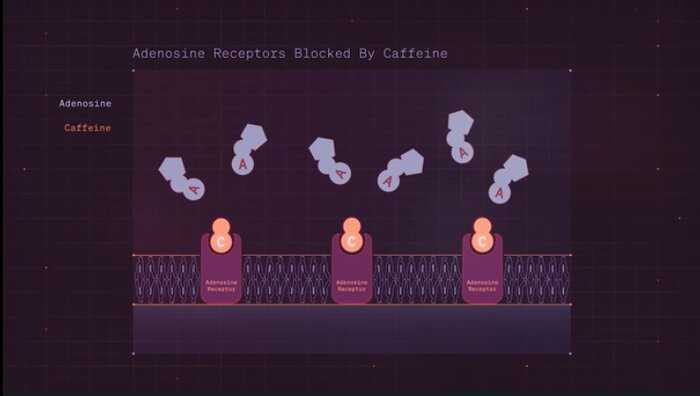
In this lesson, Matthew explains how alcohol and caffeine impact on your sleep. You’ll learn:
- How long caffeine remains in your system
- Why it can impact sleep quality – without actually waking you up
- How and why alcohol sedates you but disrupts your sleep
- The negative consequences of disrupted sleep
- Tips to better manage your caffeine/alcohol intake
Matthew’s keen to stress that he’s not puritanical about drinking either coffee or alcohol! He’s just eager for you to be aware of the science around sleep for you to make more informed choices that will optimize your overall health.
Lesson 6: Prevent sleep debt
“Sleep is a biological necessity. Your brain and your body expect that sleep. And they expect it each and every night.”
Here, Matthew explains that not getting the sleep you need causes the compound that promotes sleep (adenosine) to remain in the brain. This causes drowsiness throughout the day.
Adenosine accumulates for every day you undersleep and can’t be got rid of by a single ‘lie in’. Neither can the benefits you have lost by undersleeping be regained.
But in this lesson you will learn about:
- The pros and cons of daytime napping
- How to use naps if your sleep patterns have become disrupted
- Practical tips to combat jet lag
Having spent some time considering ways in which undersleeping dulls the brain, we move on to how we can energize it!
Lesson 7: Fire up the brain
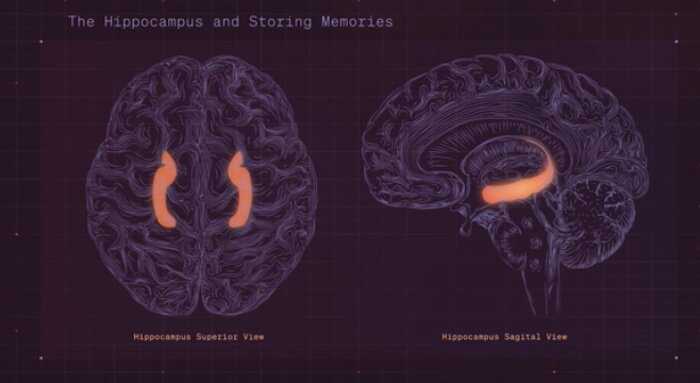
“Sleep is critical for memory and learning.”
.. and in this lesson Matthew gives you three reasons why.
Then, using examples and analogies Matthew explains how sleep is used to:
- Prepare the brain for learning, and making and storing new memories
- Integrate and associate new information with existing memories and data
- Divine solutions to problems the waking brain can’t solve
And that’s obviously where the saying you should sleep on it comes from!
This lesson ends with an intriguing technique called the genius gap. If you take the class, try it and see what it does for your creativity!
Lessons 8 and 9: Sleep across our life span & Overnight therapy

Here Matthew explores how and why each of the following aspects of sleep are altered as we age:
- Quality and quantity
- Circadian rhythm
- Proportions of REM and NREM sleep
He also makes us rethink our attitude to sleep. To do this he uses an analogy that helps you understand why you have to supplement your ability to sleep – not assume you need less of it as it becomes harder to come by!
And this is incredibly important as Matthew’s research – along with that of others – suggests a strong link between lack of sleep and the risk of developing Alzheimers.
And the link is likely to be causal.
So it’s essential to enhance the quality of your sleep. And in Chapter 9, Matthew explains how doing this can profoundly impact your mental – as well as your physical – health.
“It’s not time that really heals all wounds, it’s time during sleep – and particularly during dreaming… REM sleep and dreaming are emotional first aid.”
Which is a great segue into the next lesson…
Lesson 10: The absurd act of dreaming
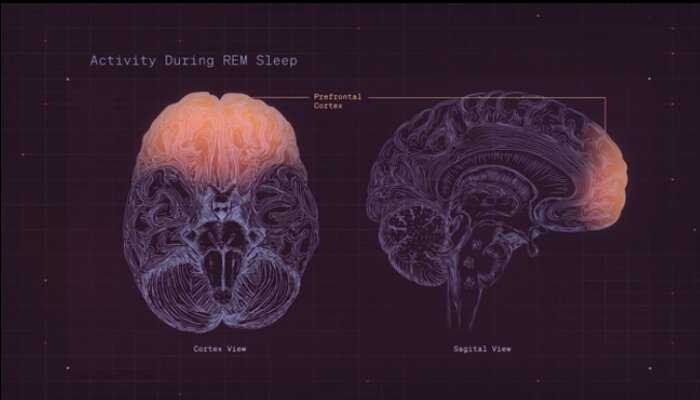
“Last night if you slept… when you went into dream sleep you became flagrantly psychotic”
A wild claim!
But Matthew gives you five good reasons why this is the case.
He goes on to explain exactly what your brain is doing during dreaming.
And it’s a huge amount – in fact parts of your brain are 30% more active during dreaming than when you’re awake.
He also elaborates on how this curious, irrational activity benefits your waking self.
This is a fascinating lesson and Matthew is fabulous at explaining things using lots of great teaching techniques, especially analogy.
But at this point I did find myself wishing there was a glossary in the workbook (not being of a scientific frame of mind). There’s a lot of biological terminology to contend with here!
Lessons 11-13: Sleep and the human body, Diet and sleep & Sleep to Thrive
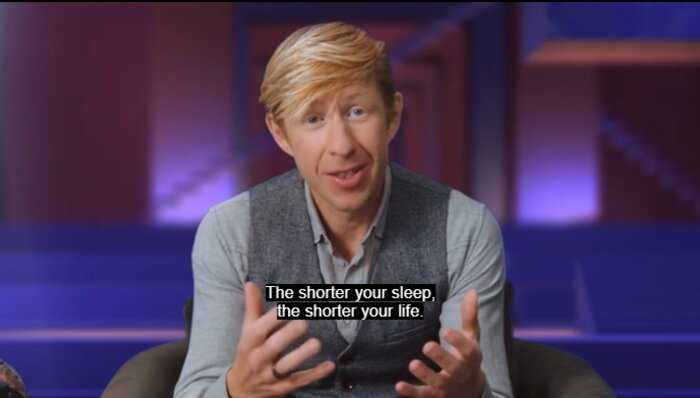
In these two lessons Matthew looks at the relationship between physiology and sleep.
He shares the evidence that tells us that good sleep:
- Boosts immunity
- Decreases your likelihood of developing certain cancers
- Increases your lifespan
- Promotes healthy hormonal balance
- Optimizes physical and mental performance
- Supports weight loss
- Regulates impulses to eat unhealthy food
- Boosts hormones that regulate appetite and blood sugar levels
- Promote a healthy gut biome
And poor sleep does precisely the reverse.
He also explains the biology behind how sleep works to optimize health and mental and physical performance. As well as how it makes you more robust and able to overcome disease if you do succumb to it.
By this point I needed no more convincing that I needed to up my sleep game, so I was relieved to see that the next lesson provided actionable tips to make that happen.
Lesson 14 and 15: How to sleep better & Reclaiming your sleep
This is a purely practical lesson in which Matthew shares actionable tips to help you get a better quantity and quality of sleep.
Starting tonight.
There’s plenty to go on, ranging from regularity to room temperature. And they’re supplemented by further titbits in the workbook.
Importantly, Matthew makes it clear that if you have a sleeping disorder, your doctor is your first port of call. And there’s a link to an insomnia questionnaire in the bottom corner of page 21 of the workbook that you can use to establish the severity of your condition.
As he bids us farewell, Matthew reflects on how society could change in the future to support sleep health.
And why it should.
“If we don’t do something to change, it may be one of the greatest public health challenges that we now face.”
And let’s not forget he said this in the middle of a global pandemic!
What I Liked about the Matthew Walker MasterClass
Matthew’s credentials for teaching the subject
Beyond that, though, what is also apparent is the depth and breadth of his expertise.
Matthew has exclusively focused on the subject of sleep for more than two decades.
That’s twenty years of research and engagement with all the prominent scientific literature on the subject. He is, without question, one of the most high profile intellectuals specializing in the topic of sleep.
And he’s summarized all he’s gleaned into a three hour class that’s designed to improve your health and well being through promoting an understanding of sleep.
Parts of this MasterClass were fairly challenging in terms of scientific content. But his enthusiasm carries you along and is supported by his talented teaching.
Great screen graphics and animations to support understanding

Matthew’s gifted teaching was well supported by screen graphics and animations. These really helped to cement some of the difficult concepts being taught.
Mind blowing facts that will make you want to up your sleep game
I really did learn a lot from this class. And it definitely provided enough impetus for me to make some lasting, solid change – and not just to my sleep routine.
Actionable tips to help you make changes and optimize your health and longevity
Whilst the course was mostly theoretical, there were practical tips and techniques that you can use to optimize your sleep routine. Both during the class and in the workbook.
And if Matthew is right, following these tips could really be life changing.
Does not dumb down but makes science accessible
It’s always obvious, to me, when a MasterClass presenter has experience of teaching.
In my view, Matthew pitches this class very well. He uses all the relevant scientific terms but all the teacher’s tricks – especially analogies – are used to place these in a clear context.
His direct approach, body language and manner of speech draw you right in.
Though he is a scientist, his language is very lyrical. He uses lots of metaphors and poetic phrases quite naturally as he speaks. I personally loved this, finding it really compelling listening.
What I thought could be Improved
A better balance of theory and practice
To be fair, this course is called The Science of Sleep. However, I think it could benefit with more discussion of practical techniques.
Or perhaps the practical techniques could appear earlier in the line up. It’s not until the penultimate lesson that they are addressed. By this time, I was beginning to feel a little overwhelmed.
Does duplicate some of his book
It’s fair to say the content of this course is not unique. A lot of what you learn here is available in Matthew’s book. I address this more in the section Is the content unique.
A glossary in the workbook would be helpful
There are a lot of scientific terms used in this MasterClass. Matthew is great at explaining them clearly the first time they are used.
But it would be helpful to have a glossary handy for when they recur.
Who is the Matthew Walker MasterClass for?
In my opinion this class would be a good fit for anyone who can tick one or more of the following boxes:
Anyone who:
- Is serious about improving their sleep quality
- Demands a scientifically backed approach to life improvement
- Wants to feel more alert and energetic during the day
- Needs to get to sleep faster and wake up fresher
- Is anxious to improve their overall mental and physical health
In terms of existing knowledge? On a scale of 1-10 (where 1 is a lay person and 10 is a neuroscientist) I would rate this course as suitable for those who fall between 1-9.
This class may not suit someone who:
- Has already read Matthew’s book – though if you’re a fan you may still find there’s lots to gain
- Has a sleep disorder – again, you may still find this class helpful but your doctor should be your first point of call
How much does the Matthew Walker MasterClass cost?
MasterClass pricing may have changed since this review was written. For the latest purchasing information please check here.
At the time of writing, a MasterClass subscription costs $120 per year – or $10 a month.
The subscription gives you access to all the 190+ courses on the platform for a full year.
The great thing about this offering is that the more classes you take, the less the cost per class is.
For example, if you’re able to find at least 4-6 classes you like, it means you’re effectively paying $20-$30 per course. ($120 / 6 classes = $20).
Considering classes are taught by world experts the value is unbeatable. It’s sort of a way to hack learning.
What’s more, MasterClass also offers a 30 day no quibble refund if you’re unhappy with your purchase.
Is there anything better than the Matthew Walker MasterClass?
There are no other classes on the MasterClass platform covering sleep, or sleep science.
However, there is a class on meditation from the founder of modern mindfulness, Jon Kabat-Zinn, as well as a class on yoga by Donna Farhi.
There are, however, courses available on Coursera or Udemy. These tend to focus either on specific aspects of sleep science (the impact of circadian rhythms) or on practical tips to get more sleep.
So you might have to take several of these to gain the depth and range of information covered in Matthew’s class.
Taking this into consideration, and given Matthew’s credentials, I would say his MasterClass represents the best value
The Matthew Walker MasterClass: what others have said
No review would be complete without taking a look at what others have said about this MasterClass.
In fact this review is likely to be the most critical out there – because I want to give you as accurate a representation as possible.
“I just finished Matthew class and loved all the lessons. “
And:
“Walker's teachings literally changed my life. I'm in way better shape now and will not accept anything below 7 hours of good sleep a night, more is better. “
And this one sums up my own opinion of the course:
“This is a ‘wake up call’, a topic that should be part of our education… not an elective.”
Is the content unique?
Matthew has also written a book called Why We Sleep which is available on Amazon. The book is just over 300 pages, and a glance at the contents page shows that the content is similar to his MasterClass.
So, no. The content is not totally unique.
That being said, MasterClass has packaged this course so that it gives a complete overview of everything the book contains in just 3 hours. It’s visual and engaging in a way that a 300 page book can’t be.
For me, this MasterClass provided a learning experience that, in my view, you simply can’t gain from the pages of a book.
And in response to this query:
“I’ve previously read Walker’s book “Why We Sleep.” I’m curious if this class goes beyond the book or if it’s largely the same information as is covered in the book.”
One MasterClass participant replied:
“That book was life and sleep-changing for me - really made me prioritize sleep in ways I never had before. While the class does not cover much new territory, I was surprised how useful it was as a refresher course in Walker’s ideas and approaches. Hearing him talk the talk emphasized points I had overlooked, and inspired me anew to commit to good rest, and lock in the remarkable benefits that come with it"
So it would seem that even if you have already read the book, the class still has much to offer.
Verdict: is the Matthew Walker MasterClass worth it?
It’s a “yes” from me.
I learned so much from this MasterClass and it has profoundly changed my relationship with sleeping.
If Matthew is right about sleep, and his credentials suggest he is, then following his advice could impact every aspect of your life. From your intellect all the way through to your longevity.
And you could get started tonight.
My only caveat is that, if you have a severe sleeping disorder (eg sleep apnea or parasomnia) your doctor should be your first port of call.
And if you feel you learn better by reading, you could try reading Matthew’s book Why We Sleep.
But if you’re keen to get started quickly, then this class is a comprehensive summary of what’s in the book, packaged in an engaging and motivating way that you can act on after only three hours of your time.
And of course there are 90+ other MasterClasses for you to try on the platform. Others that might sit well with this MasterClass are Neil deGrasse Tyson on Scientific thinking and communication, Paul Krugman on Economics or Neil Gaiman and the Art of storytelling.
And MasterClass also has a refund policy, which removes the risk of you losing out if you don’t enjoy it.
Frequently asked questions
A MasterClass all access annual pass is $120. This will give you access to all 190+ classes (and their resources) for 12 months.
It consists of 15 video lessons totalling 3 hours and 12 minutes.
Sadly no. But MasterClass offers a range of purchasing options and refunds if you’re not satisfied.
Yes, MasterClass offers a 30 day full refund policy.

Liz Hurley has 30+ years of high school teaching experience and is one of our senior writers here at Learnopoly.



I am lucky that I noticed this blog, just the right information that I was looking for! .
I’m so glad you found the information you were looking for! 😊 Thanks for stopping by, and I appreciate your kind words!